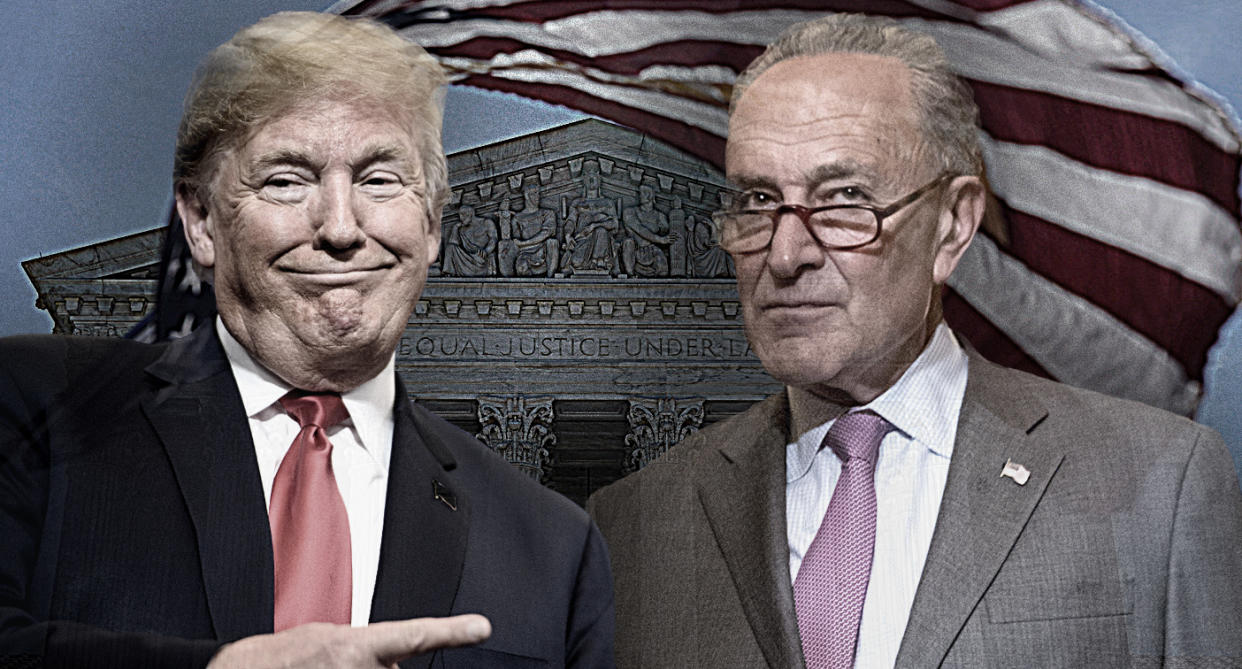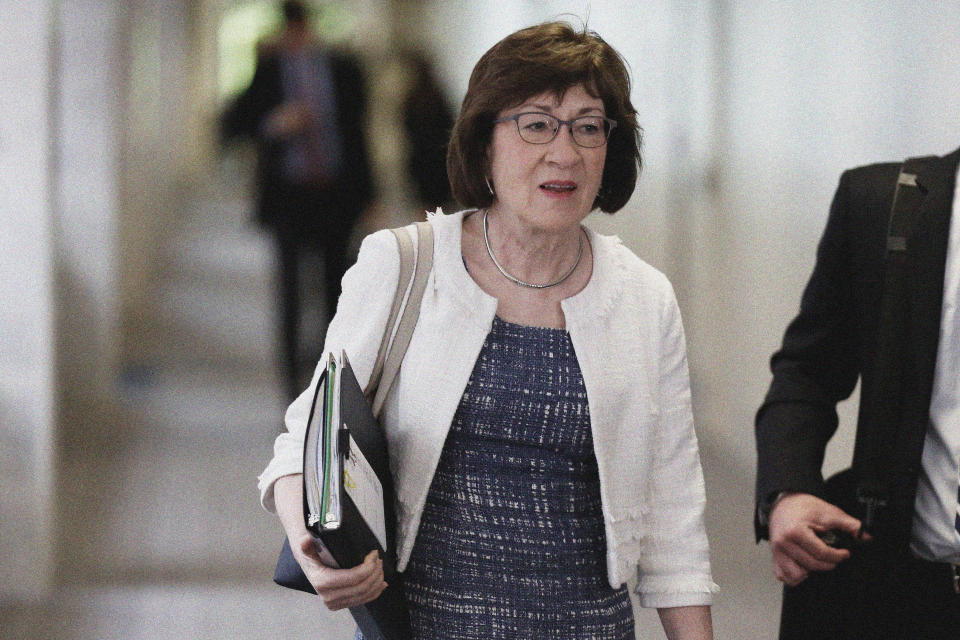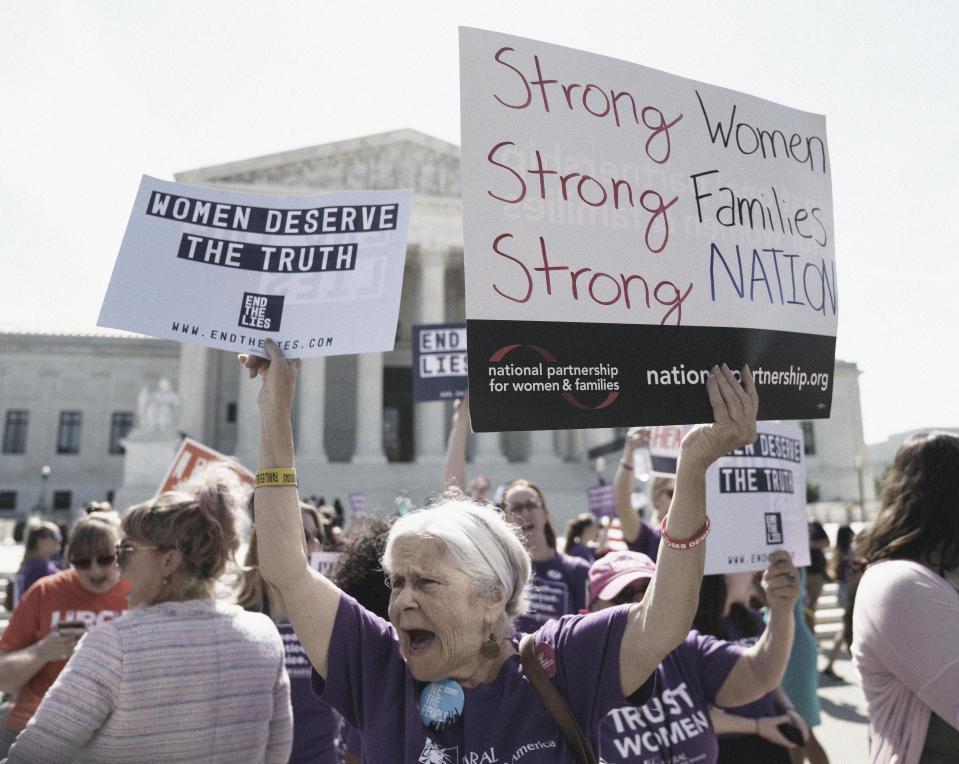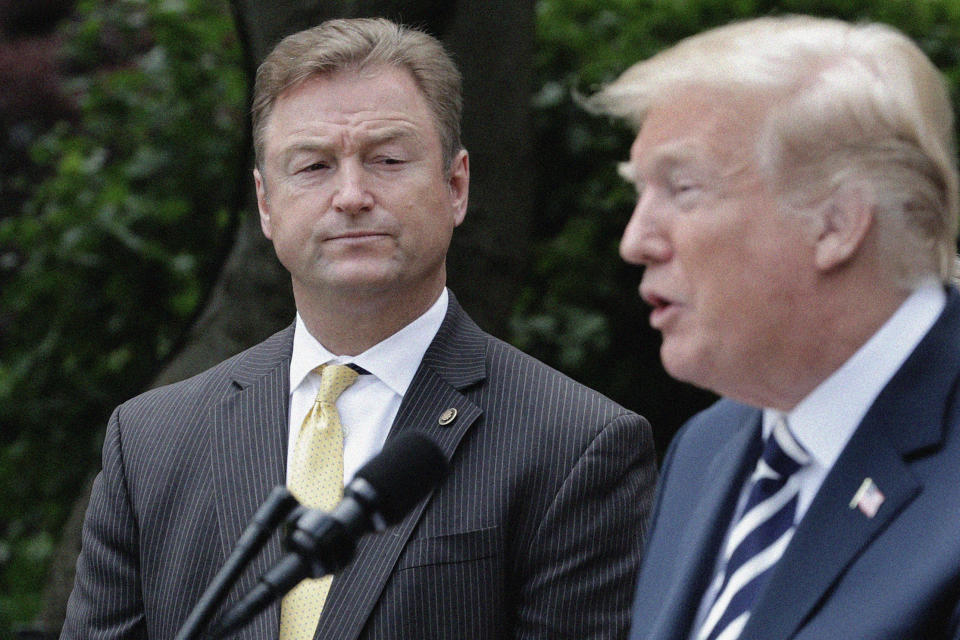Democrats gear up for a fierce and probably losing fight against Trump’s court pick, whoever it is

WASHINGTON — It was a good list, conservatives agreed, maybe even the best list. Released by then-candidate Donald Trump in May 2016, the list consisted of 11 people whom he would consider nominating to the U.S. Supreme Court, in the unlikely event that he were elected president in the fall. Trump had never styled himself a scholar of the law, or of much else but the art of the deal, and had allowed the conservative Federalist Society and the Heritage Foundation to put together their dream roster of jurists.
And what a roster it was. “All are white, and eight of the 11 are men,” the New York Times reported, and virtually all had credentials as conservative in their interpretations of the U.S. Constitution.
“Donald Trump’s Terrific List of Fabulous Judges,” read the headline of a blog post on the website of the Cato Institute, a libertarian think-tank. Anti-abortion activist Marjorie Dannenfelser told the Washington Times that Trump’s was “an exceptionally strong list of jurists with immense respect for our founding documents.” She hoped that pro-life voters would not “sit out” the coming election.
They didn’t. And now, with the impending retirement of Supreme Court Justice Anthony Kennedy, they and the rest of the right will be rewarded with the second nomination of Trump’s first term to the land’s highest court. The front-runners all come from that original list released two years ago.
“You could throw a dart at that list, and I’d be happy,” says Cato’s Josh Blackman of the nominees. The full list includes Amy Coney Barrett, a judge on the 7th circuit of appeals, U.S. Senator Mike Lee, a Republican from Utah, and Thomas Hardiman, a judge on the Third Circuit Court of Appeals. Trump is expected to name his pick soon. Republicans can’t wait to unwrap their unexpected summer gift, while Democrats are filled with dread — but also resolve.
“We’re gonna fight hard, with every living breath we’ve got,” says Nan Aron of the Alliance for Justice, a group that advocates for the appointment of liberal judges. “No one on that list is acceptable,” she adds. “Everyone on that list has a record that suggests that he or she would turn the clock back on the progress made in this country.” Asked who the least bad of Trump’s nominees would be, Aron cut the question off with a single word: “Nope.”

But Trump’s opponents recognize that a legislative “nope” is going to be a heavy lift. Any nominee will need confirmation from the U.S. Senate, where Republicans have a 51-49 majority, with Vice President Mike Pence, who presides over the chamber, available to break a tie. Although some believe that Democrats will retake the Senate in November, Senate Majority Leader Mitch McConnell, Republican of Kentucky, has said he will push for a vote before then. (In fact, he has until next January, when the next Congress will be seated.) McConnell must keep the Democrats from using a McConnell tactic: that is, killing the nomination by delaying it indefinitely. That was the wily Kentuckian’s successful game plan after President Obama nominated Merrick Garland to the Supreme Court in 2016. The nomination expired in early 2017.
Delay aside, Democrats have bewilderingly few weapons in this upcoming fight. “There is nothing Democrats can do,” says congressional expert Norman J. Ornstein of the conservative American Enterprise Institute, “except make sure that they have all their votes in line to be opposed, and to make sure there is maximum pressure and focus on Susan Collins and Lisa Murkowski, making very clear that a vote for a likely Trump nominee means they are completely turning their backs on women and their long standing position for choice.”
Murkowski, Republican of Alaska, told a reporter on Tuesday afternoon that a nominee’s views on a woman’s right to an abortion would be a “factor” in her eventual vote. “I don’t think anyone has ever suggested that I’m a pushover on any Supreme Court nomination,” she said. Collins, Republican of Maine, voiced a similar sentiment. “I view Roe v. Wade as being settled law. It’s clearly precedent, and I always look for judges who respect precedent,” she said of the 1973 ruling that legalized abortion. Many fear that another conservative Supreme Court justice would, at the very least, allow states to enact more onerous restrictions on abortion, if not overturn the Roe decision wholesale.

Both Collins and Murkowski voted for Trump’s previous Supreme Court nominee, Neil Gorsuch, who Trump critics believe “took” the seat that rightfully belonged to Garland, the withdrawn Obama nominee.
Yet the statements by Murkowski and Collins (who did not respond to additional requests for comment by Yahoo News) left some slight hope for liberals that Democrats, joined by a handful of moderate Republicans, could hold the line against a radical Trump-nominated jurist. Linda Sarsour, an activist and a co-chair of the 2017 Women’s March, said she and her allies on the left were looking for “vulnerable Republicans” whose perilous electoral prospects made them open to entreaties from liberals.
She mentioned, in particular, Sen. Dean Heller of Nevada, whose seat Democrats believe they can win. Sarsour also believes that Sen. Jeff Flake, the Arizona Republican who is a frequent critic of Trump, could do wonders for his widely-rumored presidential ambitions if he stood up to Trump. Still, she recognized how grim the situation was.

“We are in a crisis,” Sarsour said late Tuesday evening, as she left a meeting at a Washington, D.C., church where she and others were organizing what she said would be a series of civil disobedience actions against the Trump administration. “Unfortunately, there’s not many things we can do.”
Despite that recognition, liberal groups in Washington huddled on Tuesday, furiously drawing up battle plans. One was Elizabeth Beavers, associate policy director for Indivisible, a group that opposes the Trump administration. Beavers worries that the eventual nominee will do “the standard song and dance” about “following precedent and following the law of the land,” in particular regarding abortion, gun rights and civil liberties. Virtually every nominee to the Supreme Court has made such assurances in recent times, largely to avoid a “Borking,” to use the term based on the unsuccessful 1987 nomination of outspoken conservative Robert Bork to the court by Ronald Reagan.
“Chuck Schumer has some work to do here to keep his caucus in line,” Beavers said, referring to the New York Democrat and Senate minority leader. At the same time, Indivisible is urging its members to call their senators to demand that the eventual nominee receive a tough hearing. Such a grassroots campaign aimed at Republican legislators proved successful in the winter and spring of 2017, when it seemed that Republicans were poised to repeal and replace the Affordable Care Act.

Shortly after news of Kennedy’s retirement broke, several civil rights organizations held a telephone briefing with journalists. Vanita Gupta, who headed the civil rights division at the Department of Justice for two-plus years under President Obama and is now chief executive of the Leadership Conference, an advocacy group, labeled all of Trump’s nominees “extremist culture warriors.” She, and others, echoed the language that McConnell used after Obama nominated Garland to the Supreme Court in the spring of 2016. “No one should be considered for the Supreme Court until the people have a say in the November midterm elections,” she said on the call, echoing precisely the majority leader’s stubborn refusal to hold hearings on Garland’s nomination, which he maintained throughout that summer and fall.
McConnell’s strategy seemed risky, as it would only reinforce the image of an utterly broken Congress. And while it would prevent Obama’s nominee from getting confirmed, the conventional wisdom went, President Hillary Clinton would simply install her own liberal judge on the court. But the gambit worked, giving Trump his first successful Supreme Court nomination, that of Gorsuch. Now comes a second.
Some liberals praised the Gorsuch nomination, seeing little point in putting up a fight. There may be more of a point today, but the result may be the same. Susan Low Bloch, who teaches constitutional law at the Georgetown University Law Center and is an expert on the Supreme Court, predicted that Trump will have his way. “The person,” she told Yahoo News, “will probably get confirmed before the election.”
_____
More Yahoo News stories on Anthony Kennedy’s retirement:
Trump pushes Supreme Court pick as campaign issue for Republicans
‘The McConnell Rule’: Some Dems want to delay vote on Kennedy replacement
Democrats have a risky long shot at blocking Trump’s Supreme Court pick
Who will pick up Kennedy’s bipartisan legacy on the court? Nobody.
Appellate judge seen as Trump’s early favorite on Supreme Court shortlist


